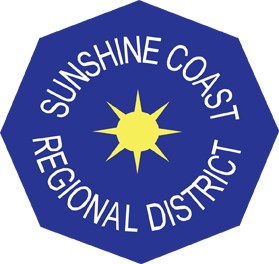After receiving mixed reviews at Sechelt council, more criticism was levelled against Sunshine Coast Regional Economic Development Organization’s (SCREDO) mid-year report when it was brought before a Sunshine Coast Regional District (SCRD) committee.
Directors expressed concern with the lack of hard data available in the progress report and requested that representatives from the organization meet with the board to discuss funding objectives and results before the Oct. 20 civic election.
Sechelt councillors had first crack at commenting on the report on Sept. 19. They praised the organization for keeping administrative costs down but urged SCREDO to make itself more visible to the public.
At a Sept. 27 SCRD corporate services committee, directors acknowledged the organization’s progress, with 10 projects rolled out this year and three expected to launch by year’s end, before expressing their dissatisfaction with the lack of available data.
SCREDO received $156,000 from the SCRD for its Sept. 1, 2017 to Aug. 31, 2018 program year, making the regional district its largest funder. The combined funding from local governments puts the organization’s budget at approximately $292,000.
Area A director Frank Mauro called it a “disappointing report,” despite the organization’s “enthusiasm.” He expressed confusion over why SCREDO was carrying out certain projects, such as a herring habitat enhancement project and research into a business case for a subsidized passenger ferry service out of Gibsons, and said he wished to see more specifics in the report that detail why those projects were undertaken and the organization’s relationship to stakeholders.
One of the main reasons SCREDO was created, said Mauro, was so that it could respond more quickly than local governments to community business needs. “I’m not sure that’s the case here,” he said, pointing out that the report makes no mention of the current Coast-wide shortage of building contractors.
Other directors criticized its lack of regional representation. “What bothers me more than anything,” said Halfmoon Bay director Garry Nohr, is “that things are being geared in many cases to the Gibsons area.” Area F director Ian Winn said the “major industrial base” of Hillside and other industrial areas in West Howe Sound were not being adequately represented by the group.
While Roberts Creek director Mark Lebbell acknowledged the report lacked detail, he pushed back on the directors’ concern about representation, stating the organization is supposed to look at the Coast “more holistically,” and several of the initiatives, such as the commuter ferry, would benefit residents up and down the Coast.
Chair Bruce Milne said the comments by Mauro reflected some of the issues raised by Sechelt council. “Much of it is very telling and speaks to me to the fact that they should meet with this board,” he said.
Two rural area candidates – Area E candidate Donna McMahon and Area F candidate Mark Hiltz – spoke at the end of the meeting about their concerns with the organization’s transparency. “The only contact information on [the SCREDO website] is an email address. There is no mailing address, there’s no phone number, there’s nothing else,” said McMahon.
CAO Janette Loveys responded that SCREDO had originally used SCRD’s headquarters on Field Road as its address when the arm’s length organization first launched but that it can no longer do so because of the Societies Act, “so we in turn as staff only have the email address as well,” she said.
-- with files from Sean Eckford



